By Louise Irvine
The Barlow sisters contributed hugely to the success of Doulton’s art pottery in the early years. Hannah, and Florence were the daughters of a prosperous bank manager but had to work to support the household after their father’s sudden death. Hannah enrolled at the Lambeth School of Art and joined Doulton’s emerging Lambeth studio in 1871. The youngest daughter, Florence, the youngest daughter, followed her sister to the Doulton studio in 1873. An older sister, Lucy, worked briefly as a studio assistant in the 1880s before becoming the family housekeeper.
Hannah Barlow
Hannah incised her designs onto the soft stoneware clay body in a technique known as sgraffito. Animals were her primary inspiration, drawn from memory or her observations at dog shows, farms, zoos and her private menagerie, which comprised over a hundred animals at one time. For a brief period, she worked at the Minton Art Pottery studio, where her love of animals caused dismay among the female artists due to her habit of carrying mice, frogs and other creatures in her pockets.
Hannah’s pet cat Tommy peeps out from under her seat in the terracotta panel above the doorway at the Doulton studio. Domestic and farm animals, as well as deer, rabbits and other British fauna, occur most frequently in Hannah's work. Lions were her favorite wild animals, although occasionally, she portrayed kangaroos for the Australian market and, even rarer, elephants and giraffes. She lacked confidence in representing humans except for young children and sometimes included them in her designs.
Rheumatism affected Hannah’s output, and from 1876, she used her left hand instead of her right to cope with this problem. Nevertheless, it is estimated that she produced three or four pots each working day, averaging a thousand pieces a year over twenty years. Hannah's decorating style remained unchanged throughout her career, although she occasionally experimented with Faience vases and tiles. Her terracotta models were exhibited at the Royal Academy shows during the 1880s. By this time, she was required to design only the frieze or reserve panel on a vase, and another artist worked on the ornamental borders. Doulton exhibited her monumental works at the international exhibitions of the period, and she won numerous medals and awards at Nice, Paris, St. Louis and Ghent.
Florence Barlow
Initially, Florence assisted Hannah, with whom she shared a studio, and her early independent work is in the same style. However, around 1878, the sisters came to an arrangement whereby Hannah concentrated on our four-legged friends while Florence focused on the feathered varieties, leading to her nickname “Birdie Barlow.” She perfected the raised slip technique called pate-sur-pate for her stoneware designs. This remained her primary decorative style throughout her career, although she worked occasionally on Faience ware. The Lady magazine shows her at work on a rare terracotta model in 1887.
Florence portrayed birds in their natural habitats and studied them in detail at the annual Crystal Palace Poultry Show, the largest in the world. She regularly contributed stories and sketches to Doulton's house magazine, Studio Notes, and her watercolors were exhibited at the Royal Academy. She won several medals at international exhibitions, including Nice, St. Louis and Auckland, New Zealand.
Leading Ladies
Hannah and Florence were celebrated as the first female artists at Lambeth and featured in popular ladies' magazines of the 1880s, such as The Queen and The Lady. The sisters never married and lived together, with Lucy taking care of their domestic arrangements. They regularly took sketching holidays together until Florence died in 1909, aged 54. Hannah retired from the Doulton studio in 1913 and died in 1916, aged 65. It was the end of an era in Lambeth.
Read more about women artists at Doulton
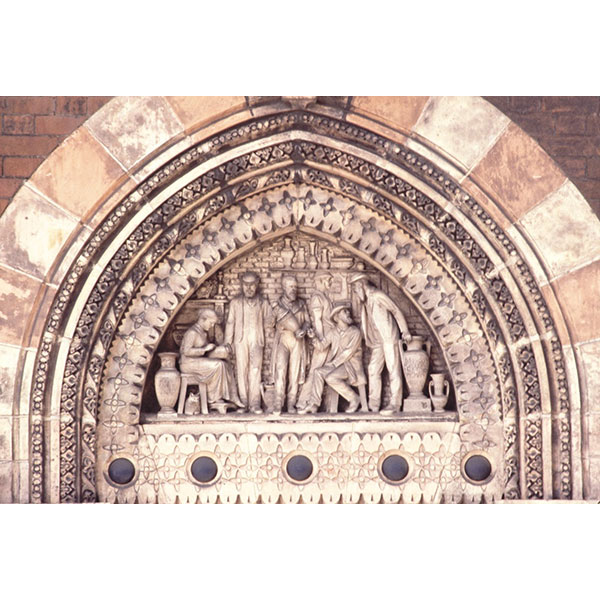
Doulton House Terracotta Panel G. Tinworth
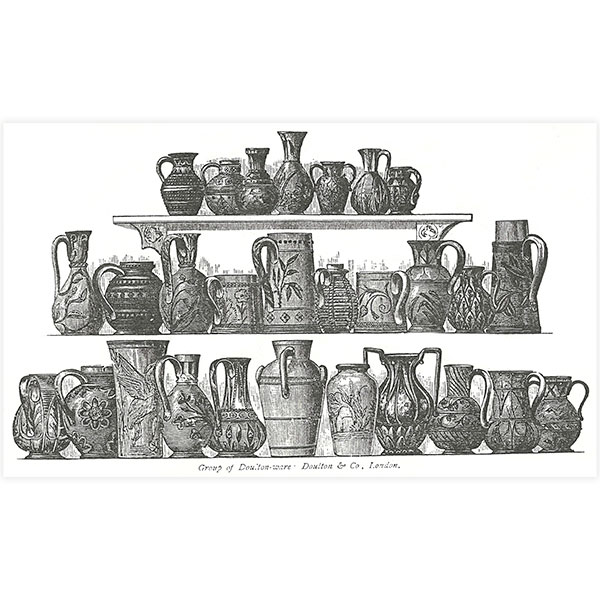
Early Doulton Stoneware
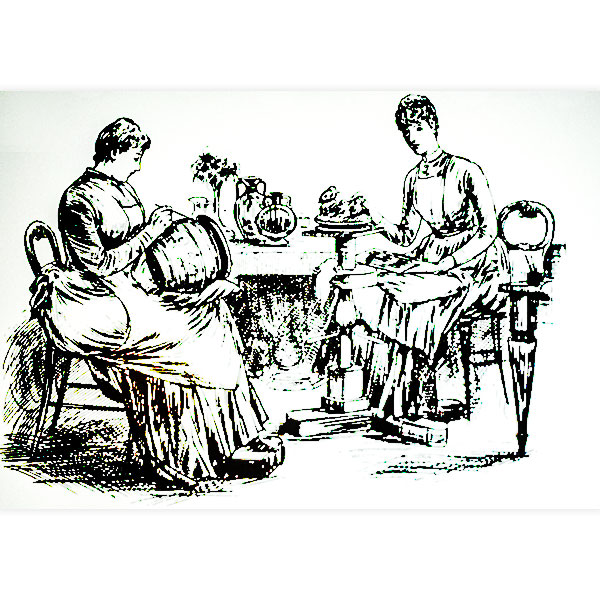
Hannah and Florence Barlow in The Lady Magazine
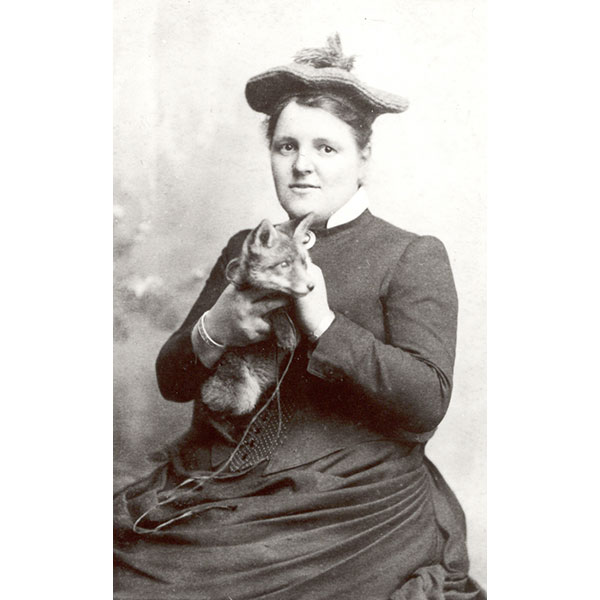
Hannah Barlow with Pet Fox
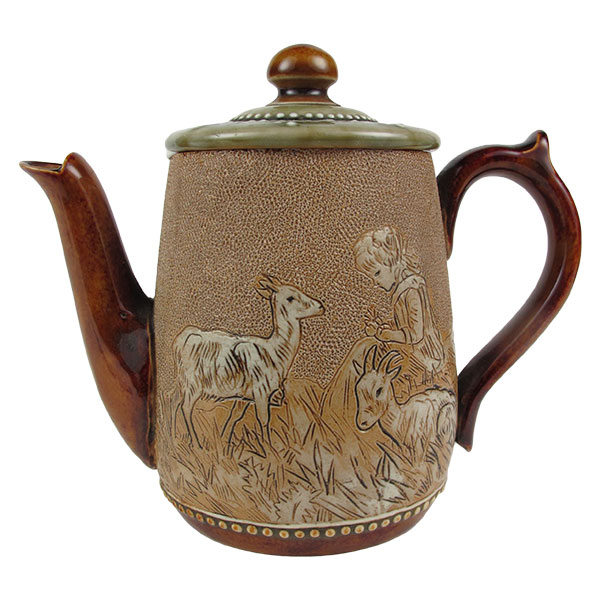
Doulton Goats Teapot H. Barlow
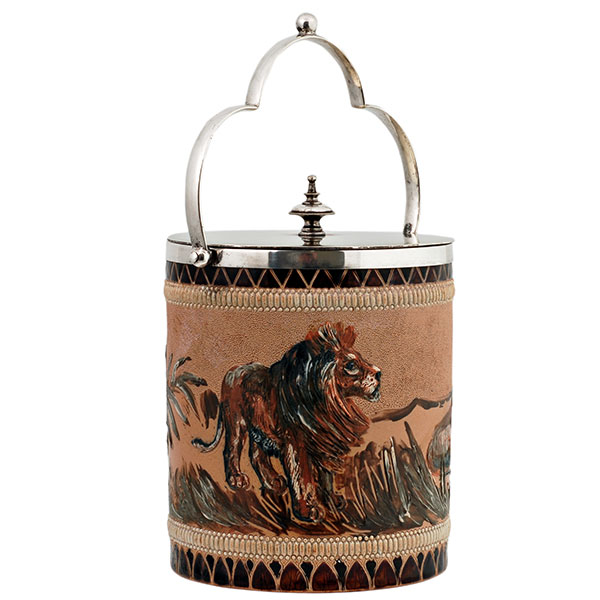
Doulton Lions Biscuit Barrel H. Barlow
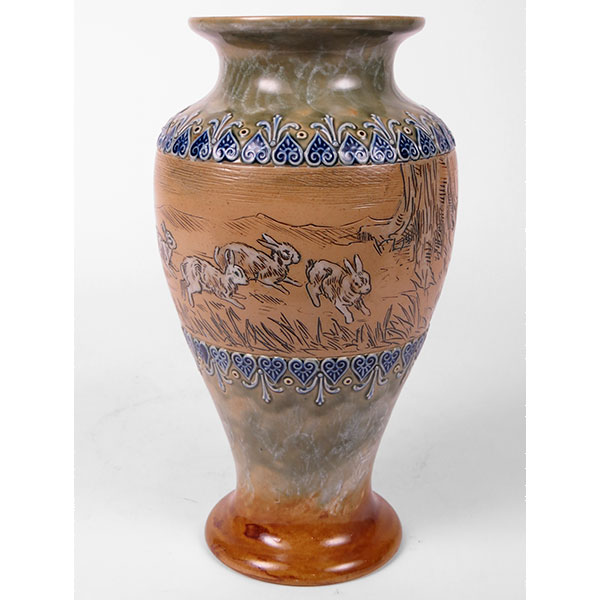
Doulton Rabbits Vase H. Barlow
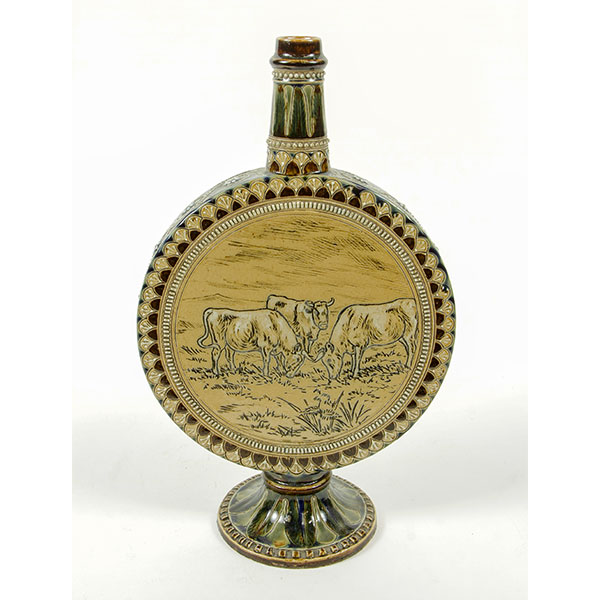
Doulton Cattle Pilgrim Flask H. Barlow
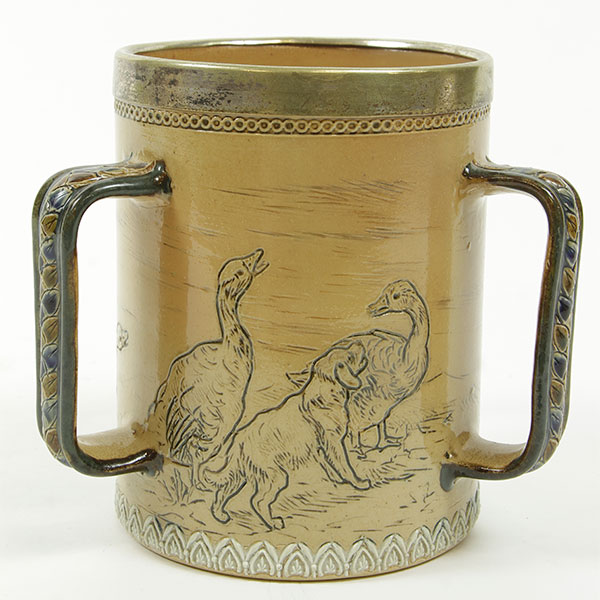
Doulton Geese Tyg H. Barlow
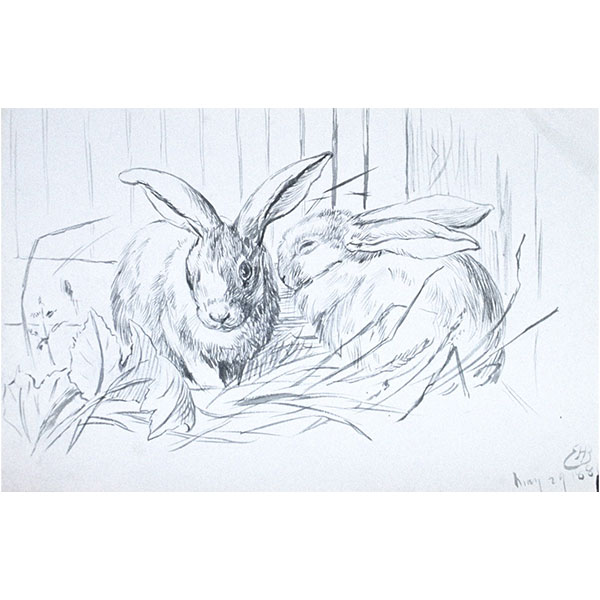
Rabbits by H. Barlow
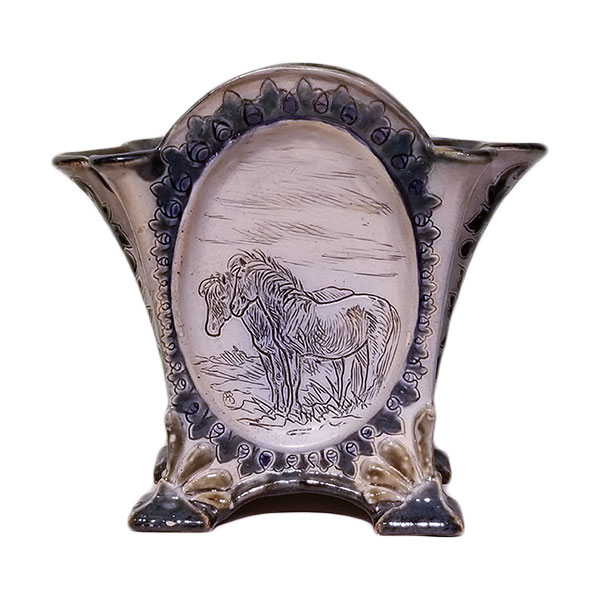
Doulton Horses Vase H. Barlow
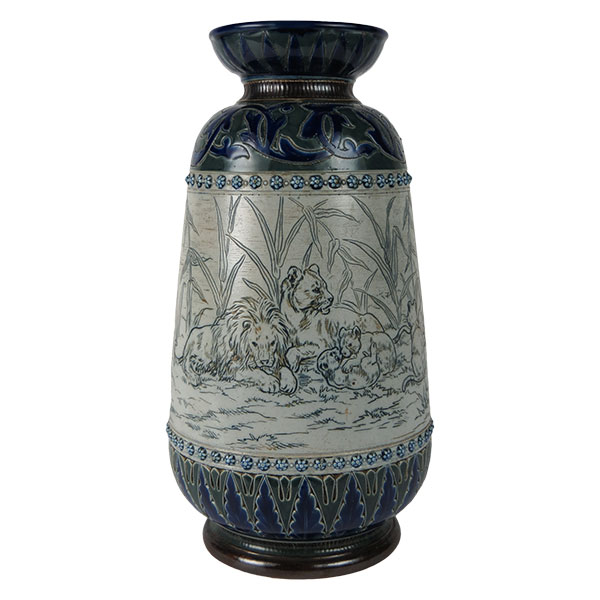
Doulton Lions Vase H. Barlow
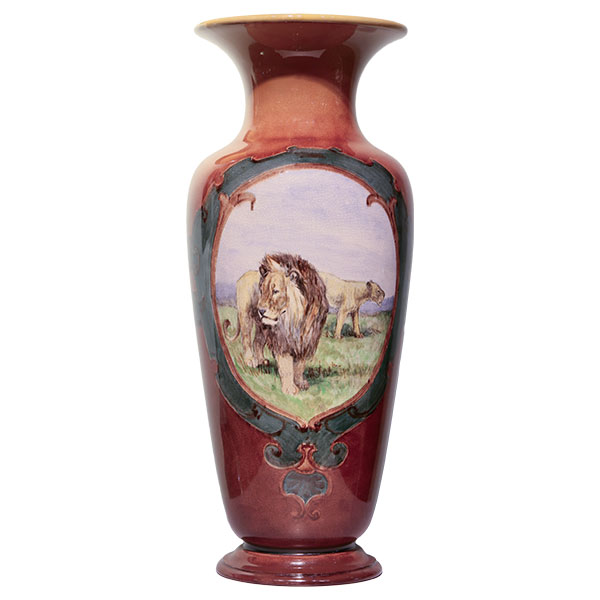
Doulton Faience Lion Vase H. Barlow
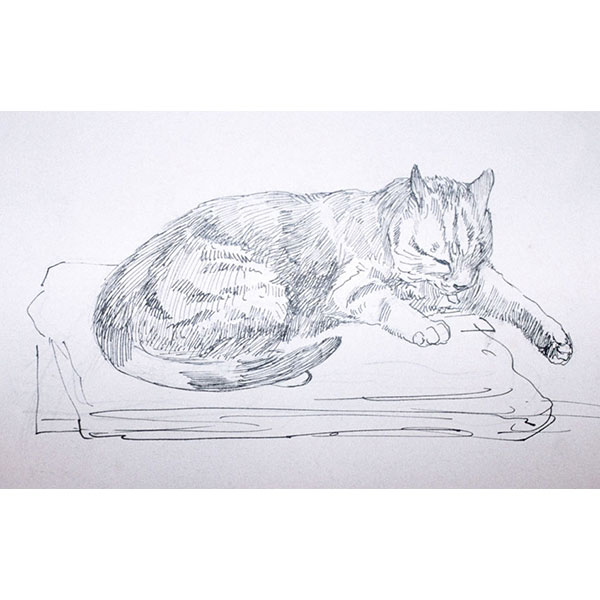
Cat Drawing H. Barlow
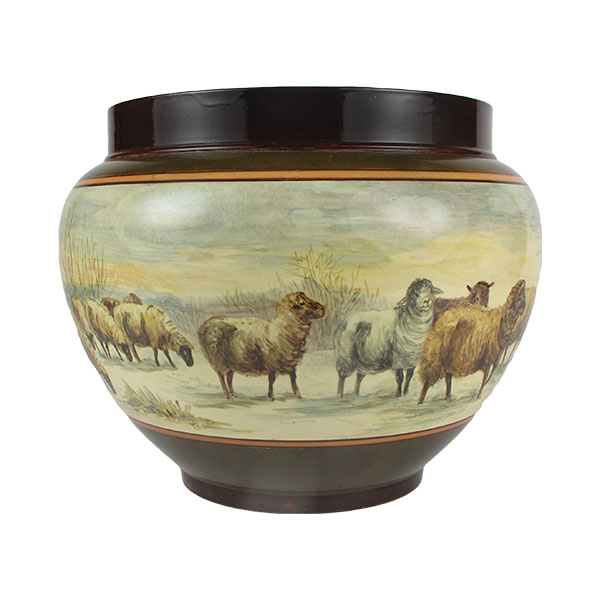
Doulton Faience Sheep Jardiniere H. Barlow
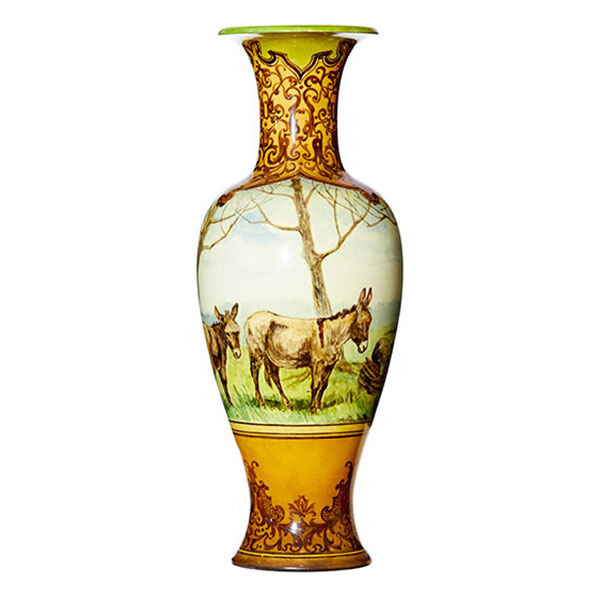
Doulton Faience Donkeys Vase H. Barlow
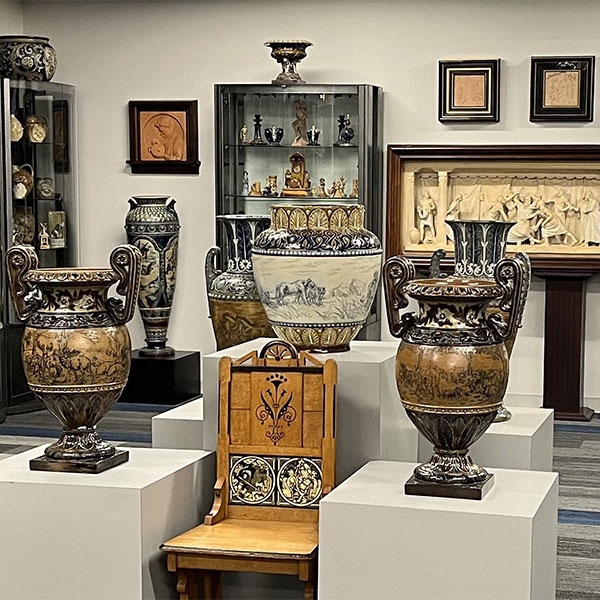
Doulton Exhibition Vases at WMODA H. Barlow
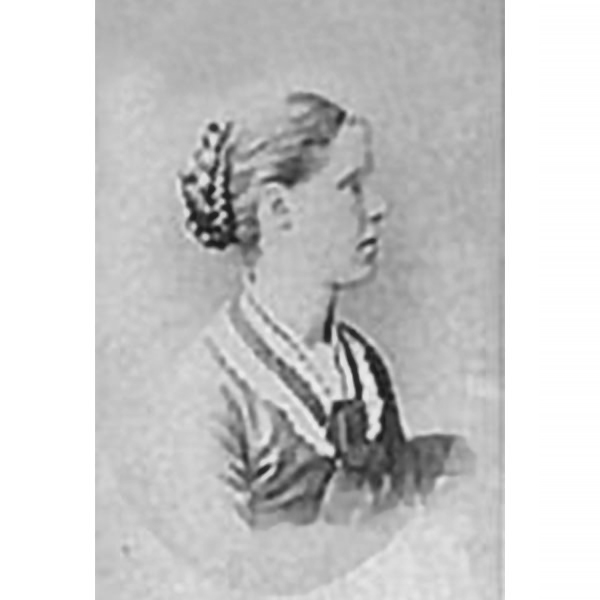
Florence Barlow
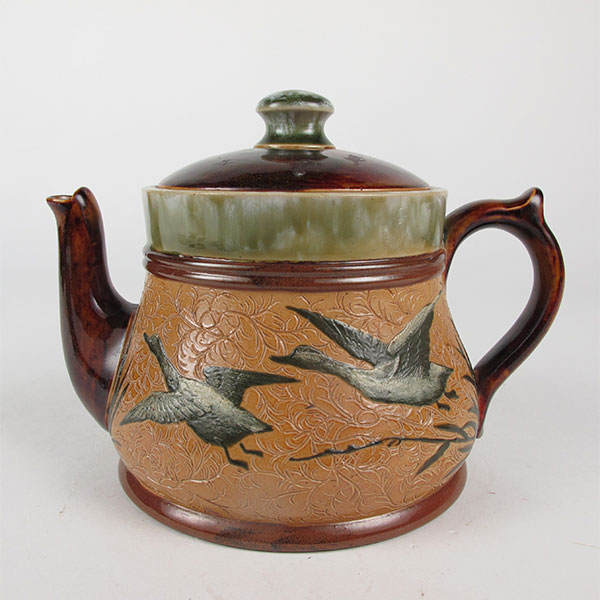
Doulton Teapot F. Barlow
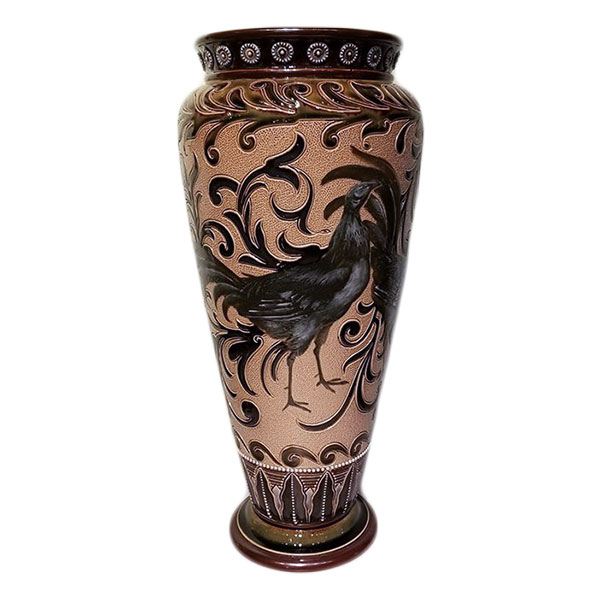
Doulton Cockerell Vase F. Barlow
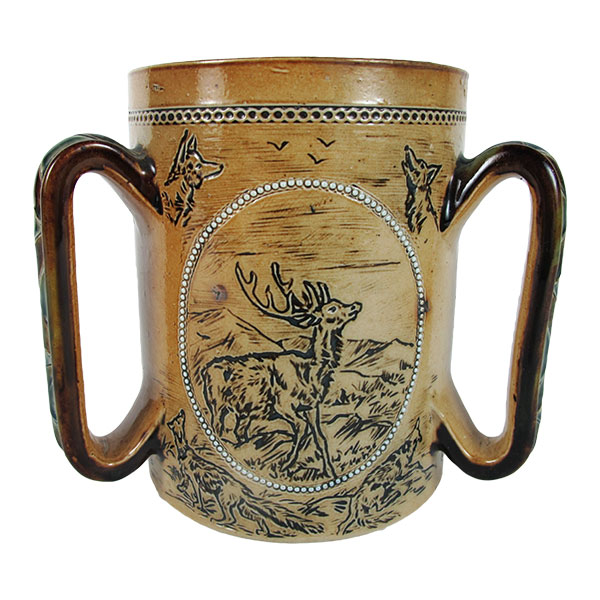
Doulton Stag Tyg F. Barlow
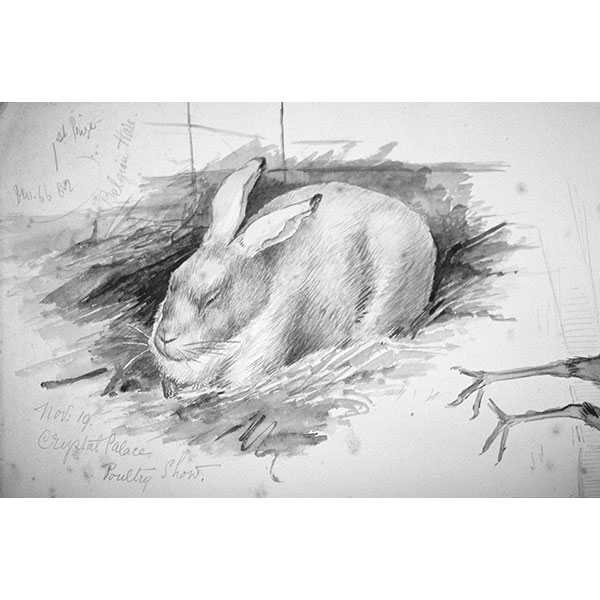
Rabbit F. Barlow
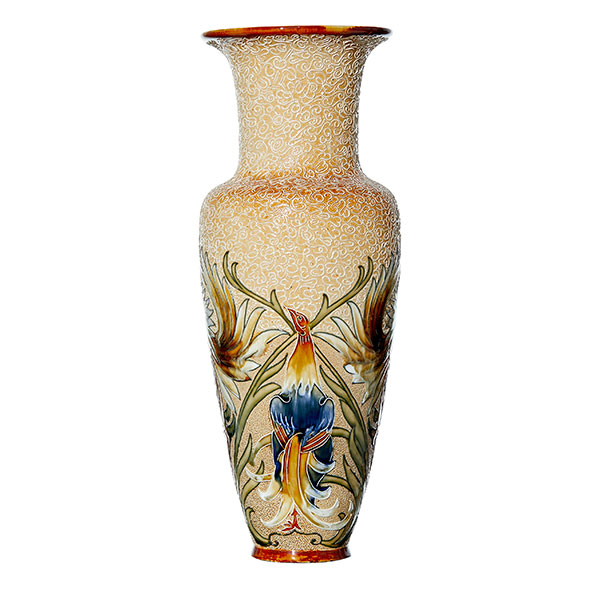
Doulton Art Nouveau Bird Vase F. Barlow
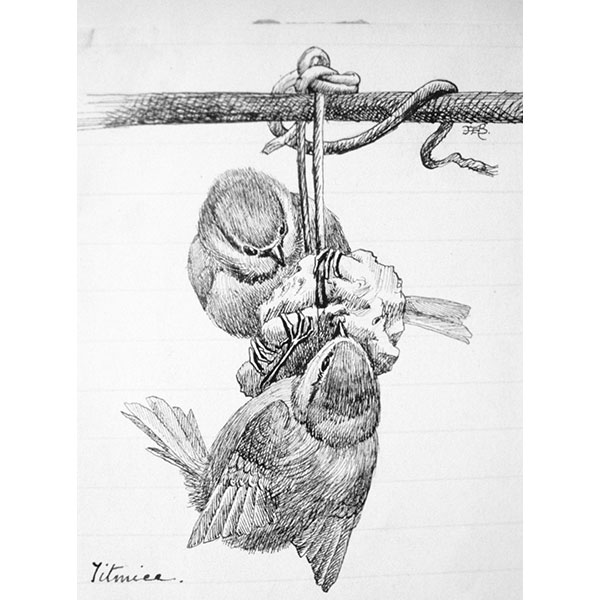
Titmice F. Barlow
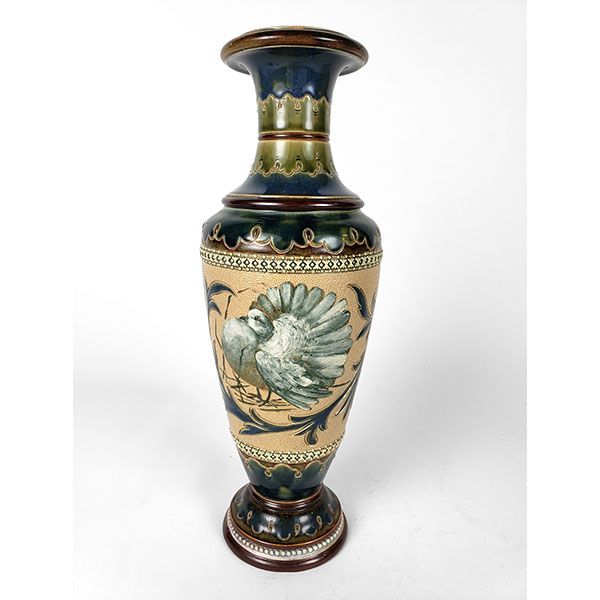
Doulton Fantail Pigeon Vase F. Barlow
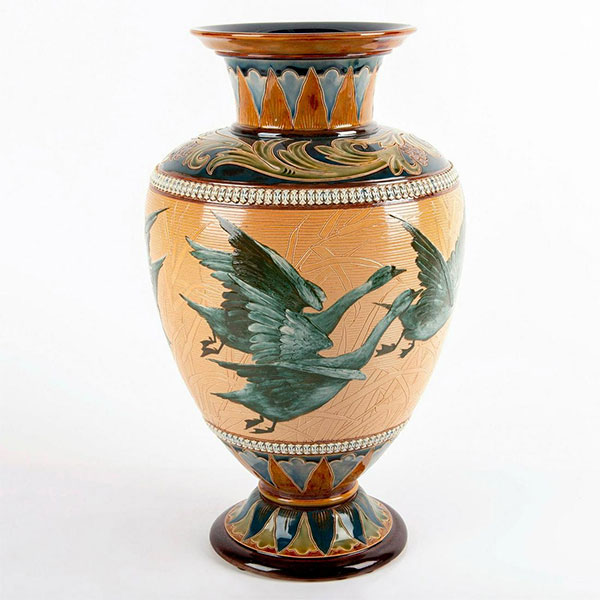
Doulton Exhibition Vase F. Barlow
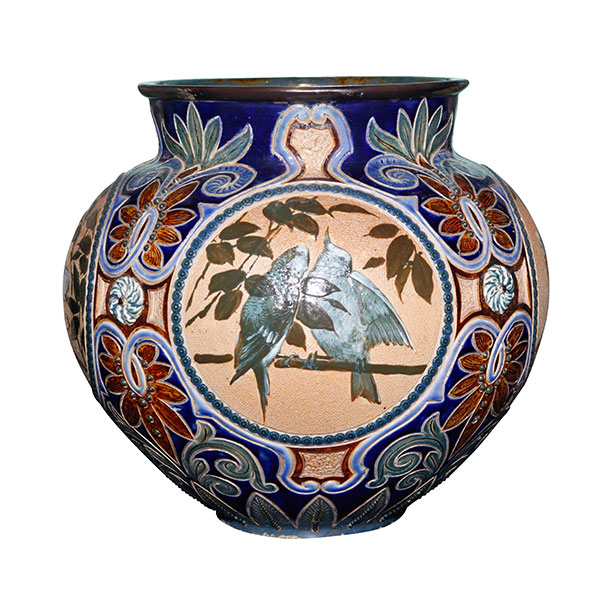
.Doulton Birds Jardinere F.
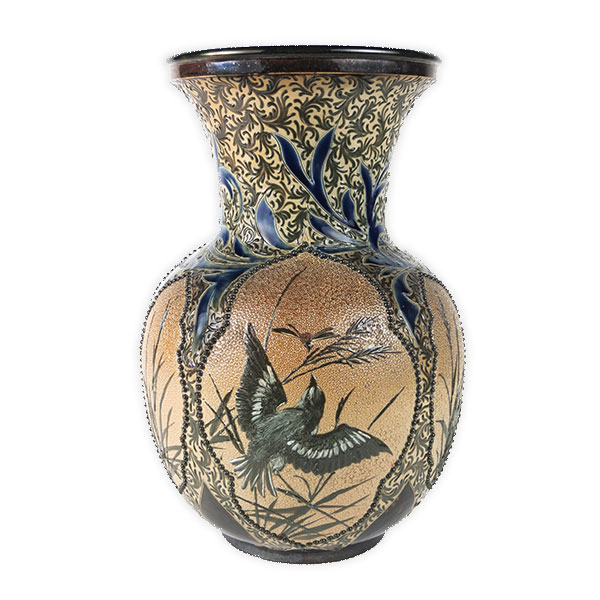
Doulton Birds Vase F. Barlow
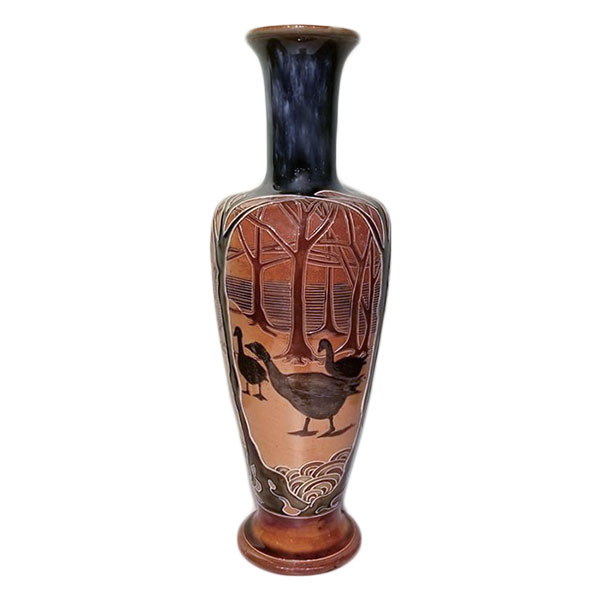
Doulton Geese Vase F. Barlow
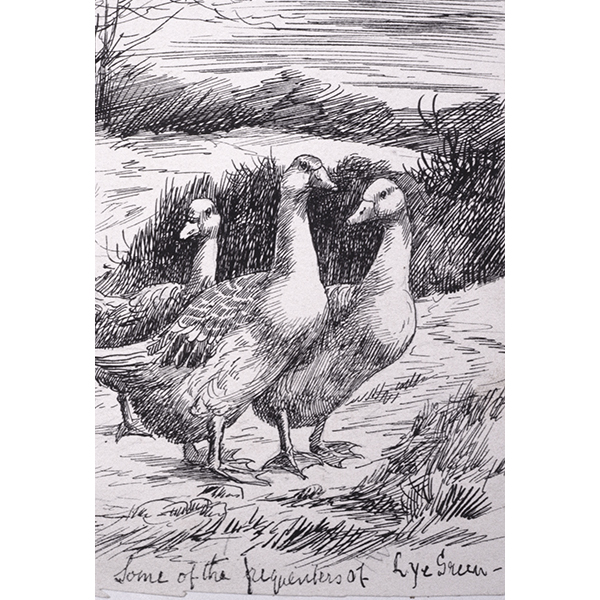
Geese F. Barlow
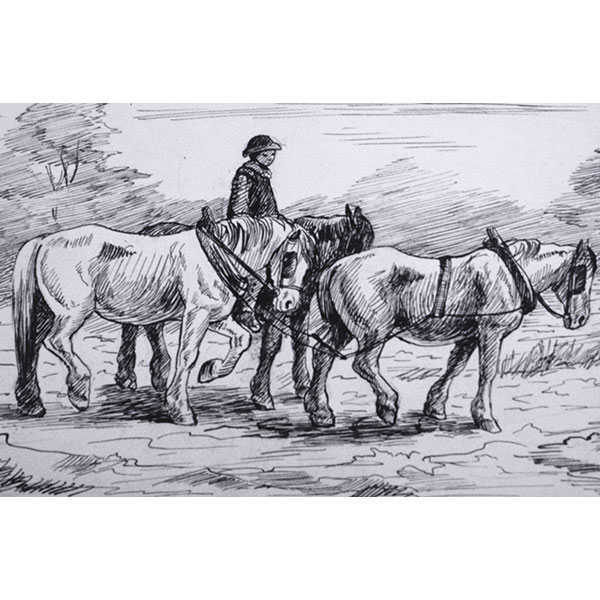
Carthorses H. Barlow
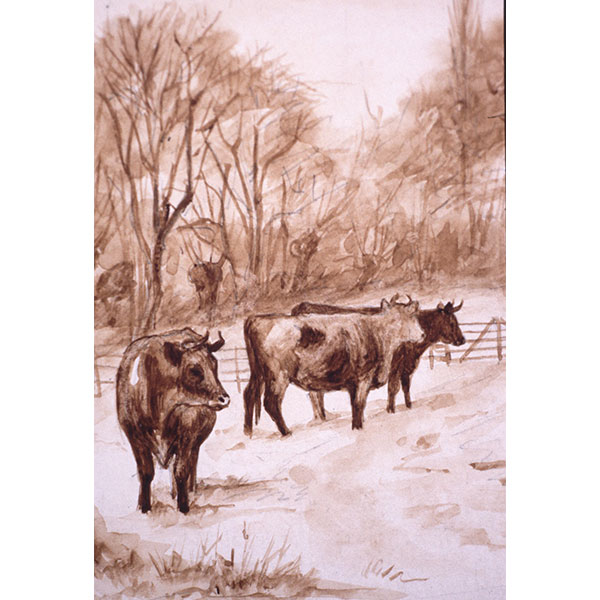
Cattle H. Barlow
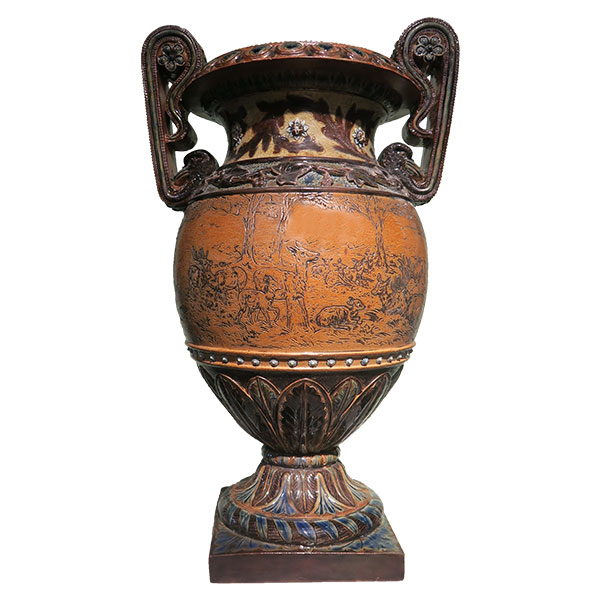
Doulton Stags Exhibition Vase H. Barlow
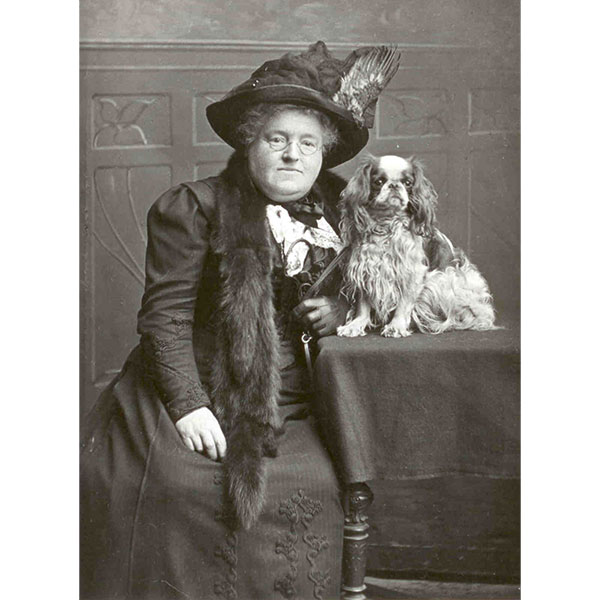
Hannah Barlow with Sir Rufus Darwin
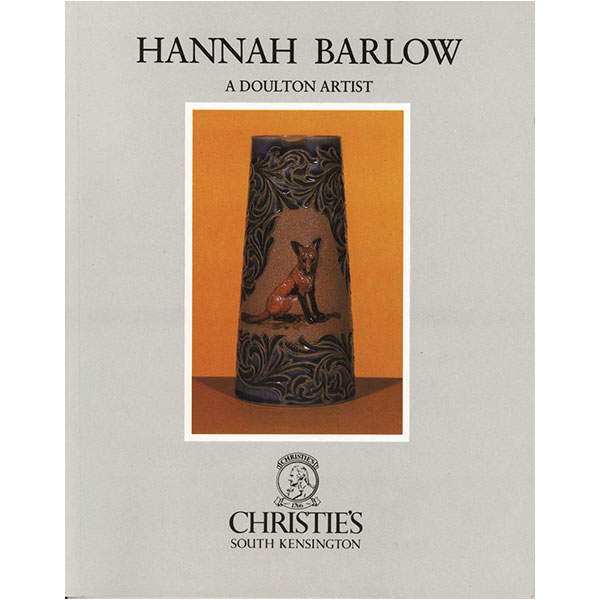
Hannah Barlow Book
